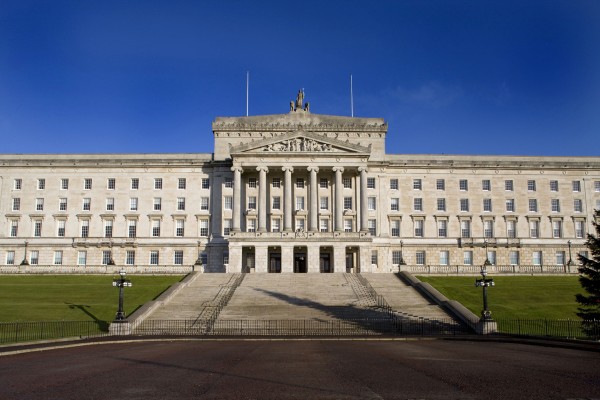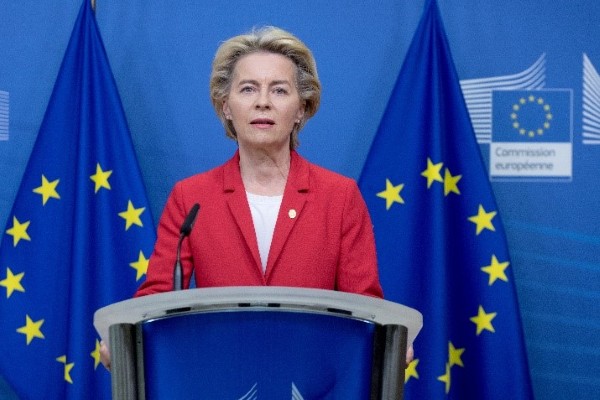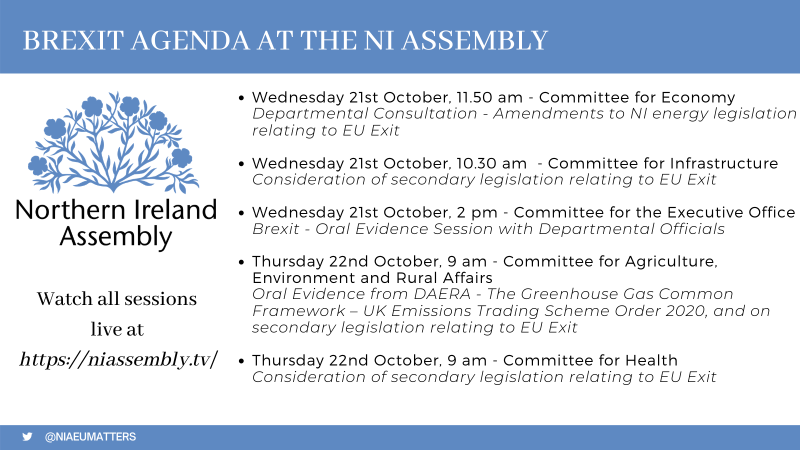Brexit Brief Newsletter
Wednesday 21 October 2020

Welcome back to the Brexit Brief. This week’s edition covers the latest developments in the EU-UK negotiations, including the Internal Market Bill and the EU’s response to this. We look at the state of play following nine negotiating rounds, the 15th October European Council, and a recent meeting of the Joint Committee. We also consider some of the points of disagreement between the two sides. We’ve included links to recent Brexit business at the Assembly Committees, and an agenda for the upcoming days.

Internal Market Bill
On 9th September, the UK Government introduced the Internal Market Bill into the House of Commons. The Bill is intended to address any barriers to trade within the UK Internal Market which may arise as a result of the constituent parts of the UK - England, Wales, Scotland and Northern Ireland - leaving the EU Single Market and its common rules and regulations. The Bill is based on two principles: non-discrimination and mutual recognition. The Bill has proved controversial, not least the clauses on the Protocol on Ireland/Northern Ireland, which would give the Government powers to disapply or modify provisions of the Protocol, "notwithstanding inconsistency or incompatibility with international or other domestic law."
Both the Scottish and Welsh Governments have recommended that their Parliaments should withhold consent for the Bill. As the Bill concerns devolved matters, the UK Government will normally ask the devolved administrations to consent to the UK Government legislating on devolved issues. The devolved legislatures do so by debating a Legislative Consent Motion (LCM). The Northern Ireland Executive has not yet published an LCM. The Scottish Government has concerns that the Bill would lower standards and encourage “harmful deregulation”. The Welsh Government concurs, saying the Bill risks “a race to the bottom”. The Scottish Government also raises the issue of financial assistance, which it argues would constitute “an uncoordinated and potentially incoherent approach to spending in devolved areas.” However, regardless of the devolved administrations’ objections, the UK Government can proceed with the Bill.
The Scottish and Welsh Governments have expressed their preference to manage the potential obstacles to trade through Common Frameworks – an “agreed common approach to policy areas that are currently governed by EU law (until the end of the transition period), and intersect with areas of devolved competence”. There are 154 such areas.
Northern Irish political parties tabled several amendments to the Internal Market Bill in the House of Commons, but these were not passed. Meanwhile at Stormont, the Northern Ireland Assembly backed a Private Members’ Motion rejecting the IMB.
EU response

© European Union, 2020
The European Union expressed concerns about the introduction of the Internal Market Bill: Commission President Ursula Von der Leyen stated she was “very concerned about announcements from the British government on its intentions to breach the Withdrawal Agreement”, quoting the principle of international law ‘Pacta sunt servanda‘ – agreements must be kept. The developments led to an Extraordinary Meeting of the Joint Committee, the body which oversees the implementation of the Withdrawal Agreement. Following the meeting, Commission Vice President Maroš Šefčovič stated that if the Bill were to be adopted, it would constitute "an extremely serious violation of the Withdrawal Agreement and of international law", and called for the offending provisions to withdrawn by the end of the month (September). On 1st October, following the progression of the Internal Market Bill through the House of Commons, the EU launched legal proceedings against the UK for breaching the Withdrawal Agreement.
State of Play
To date, nine rounds of negotiations on the Future Relationship have taken place. Convergence has been found on some aspects such as trading goods, services and investment, and participation in European Union programmes. More recently there has been progress on aviation safety, social security coordination, and fundamental rights and individual freedoms. In areas such as protection of personal data, state aid, and social, fiscal, environmental, and climate standards (which underpin a level playing field), as well as governance and fisheries, significant gaps remain between the EU and UK positions.
The European Council met on 15th October to discuss Brexit, among other pressing issues for the EU such as the Covid-19 response, climate change, and foreign relations. In their conclusions, the 27 leaders called on the UK “to make the necessary moves to make an agreement possible” while urging Member States and stakeholders to “step up their work on preparedness and all outcomes”, including no deal. The Council said that Michel Barnier should continue negotiations but earlier language about “intensifying” talks was removed from the final text. The UK’s Chief Negotiator David Frost responded, calling the EU’s approach to negotiations “unusual”. Boris Johnson, who had previously set 15th October as an informal deadline for the conclusions of talks, said on 16th October that the EU has “refused to negotiate seriously” and that the UK should get ready for Australia-style trading arrangements.
In Dublin on Thursday, Ireland’s Foreign Minister Simon Coveney told the Oireachtas Good Friday Agreement Committee that the two sides are “miles apart” on fisheries. This is a particularly sensitive issue for the French - President Emmanuel Macron said on Thursday, “on no account will our fishermen be sacrificed for Brexit. We didn’t choose Brexit, the British people did.” The German Chancellor Angela Merkel struck a more conciliatory tone, saying the UK should be open to compromise but “we [the EU] too will need to make compromises”.
More positive noises were heard after the meeting of the Withdrawal Agreement Joint Committee on Monday. The European Commission stated that the meeting “demonstrated the political will to move at pace on both sides.” Michel Barnier and David Frost spoke on the phone: Barnier confirmed that the EU is willing to intensify talks and work on legal texts. Frost called the meeting “constructive” and said the two sides will stay in touch.

Source: European Commission - Audiovisual Service
Even if or when a deal is agreed between the negotiators, the legal text will need to be drafted, finalised and translated. The European Parliament will also need to vote to pass the deal. However, it is not expected to do so unless the offending clauses in the Internal Market Bill no longer stand.
The issues
Fisheries
The European Commons Fisheries Policy gives European fisherman equal access to all EU waters, and contains catch limits or quotas designed to ensure sustainable fishing. The latter is usually the topic of intense negotiation each year. ‘Taking back control’ of UK fishing waters is seen by some on the UK side as an important symbol of Brexit. The EU argues that as the UK is requesting access to its markets, continued access to UK waters for European fishermen is a fair price for this. Most fish caught by British fishermen is sold into continental European markets.
Governance
Any deal which is reached between the EU and UK will require appropriate procedures to ensure it is upheld in practice. The EU continues to seek a strong and legally binding enforcement and dispute resolution mechanism. The UK acknowledges the need for “appropriate” governance arrangements, but insists there should be no role for the European Court of Justice in this. However, the UK has already agreed in the Ireland/Northern Ireland Protocol that the ECJ and European Commission will enforce compliance with EU rules in the region.
Level playing field
In the Political Declaration signed by the two parties, a commitment was made to a “level playing field” to ensure “open and fair” competition. A level playing field would require common minimum standards (environmental, food safety, labour) so that neither side could undercut the other and gain a competitive advantage. The UK has said it intends to maintain the highest standards, but is not prepared to adhere to EU laws and governance mechanisms.
The issue of state aid – how much a government subsidises its companies – is also a factor in this area. EU rules generally prohibit state aid unless there is some justification for it e.g. subsidies for SMEs and research and development (R&D), public infrastructure spending, and environmental aid. This issue is further complicated as according to the Protocol on Ireland/Northern Ireland, the UK will have to comply with EU state aid rules to some extent, while provisions in the Internal Market Bill would allow the UK Government to disapply these rules.
EU Ambassador visits Northern Ireland
The EU's first Ambassador to the UK, João Vale de Almeida, visited the devolved regions, including Northern Ireland, in September. In Belfast and Derry, he met with Deputy First Minister Michelle O'Neill, Junior Ministers, the Speaker, as well as MLAs, civil society, business representatives and promoters of EU funded PEACE projects. First Minister Arlene Foster was unwell.
In an interview last week, Vale de Almeida said he returned from Northern Ireland "with an acute sense of the seriousness of the impact of the IMB [Internal Market Bill] provisions on the situation in the nation.” He added that “the contents of this IMB have created additional uncertainty in Northern Ireland" and that after his visit he is "even more worried".
In the Committees
- 16th September – Committee for Economy - Katy Hayward gave evidence on the UK Internal Market Bill and its implications for Northern Ireland
- 16th September - Committee for The Executive Office - Evidence from the Human Rights Commission and the Equality Commission on the NI Protocol.
- 17th September - Committee for Health - Evidence from the Department on Brexit
- 17th September - Committee on Agriculture, Environment and Rural Affairs (AERA) – Evidence from Department on the Common Frameworks and EU Exit Preparations and corresponding legislation
- 23rd September - Committee for Economy - Aodhan Connolly of the Northern Ireland Business Brexit Working Group on the UK Internal Market Bill and Brexit
- 23rd September - Committee for The Executive Office - Evidence from the Junior Ministers on Brexit
- 24th September - Committee for Justice - Evidence from PSNI on justice and policing issues relating to the EU Exit
- 24th September - AERA Committee - Evidence from the Department on the Internal Market Bill, Fisheries Bill and the secondary legislation relating to the EU Exit
- 30th September - Committee for the Economy - Department for Economy's EU Exit Group on Brexit, the Internal Market Bill and the Trade Bill
- 30th September - Committee on Infrastructure - Departmental briefing on Brexit
- 7th October - Committee for The Executive Office – Evidence from Department on Common Frameworks
- 8th October - AERA Committee – Evidence on Belfast, Foyle, Larne and Warrenport Ports, Evidence from Department on Secondary Legislation
- 14th October - Committee for Infrastructure – Departmental Briefing on Brexit
- 14th October – Committee for The Executive Office – Briefing from Joint Committee of the Northern Ireland Human Rights Commission and the Irish Human Rights and Equality Commission on Brexit, Briefing on UK Command Paper by Department Officials
- 15th October – AERA Committee – Evidence on secondary legislation
This week at the Assembly




